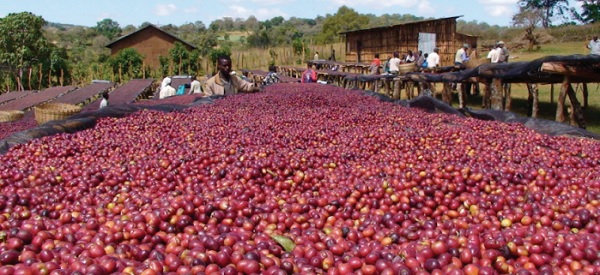
Brazilian coffee exporters are currently struggling to find shipping capacity to transport a bumper crop from the world’s top producer, which could result in supply delays to roasters worldwide, according to Reuters news agency.
The Brazilian government expects to export around 60 million 60-kg bags compared with 45 million bags recorded for last year. Similarly, the US Department of Agriculture estimates that Vietnam’s coffee production in 2018/19 would reach a record 29.9m bags, a 2% increase from 2017/18.
Globally, coffee production is estimated at 158.56million bags compared to 159.05million bags, a decrease of 0.3% from last year. Arabica production is estimated to reduce by 6.6% to 97.16million bags while Robusta is projected to increase by 11.5% to 61.40million bags.
However, Africa’s production is expected to increase by 5.3%from last year with an output of 17.3million bags. Global consumption is projected to increase by 2% at 162.12million bags with major increases noted in Asia and Oceania countries and South America.
In the East African region with the exception of Kenya, Rwanda, Tanzania and Burudi expect to record a surge in coffee export volumes citing a fall in international prices.
Data from the Kenya National Bureau of Statistics shows that the crop’s export earnings declined by 9% in the first half of 2018 to Kshs 13.8 billion compared with Kshs15.2 billion last year. Rwanda’s annual coffee export revenues grew 10% to $64.1million in 2017, according to a new report by the National Agriculture Export Board (Naeb). Naeb cited increase in production and export volumes.
Similarly, Tanzania’s coffee production is expected to increase 15% from 1.15 million bags to 1.30 million bags in the year 2018/19 as a result of biennial bearing cycle and favorable weather conditions as reported by Tanzania Meteorological Authority (TMA).
The United States Department of Agriculture report indicates that ending stocks for financial year 2018/19 are forecast up by 7% from FY2017/18 due to an increase in production. In Burundi, farmers expect the country’s harvest to be in the range of 15,000 to 17,000 metric tons this year following good rainfall and increased fertilizer use.
Minister for Agriculture Animal Husbandry and Fisheries, Vicent Bamulangaki Sempijja reiterated that the government targets to export 20 million bags per year by 2025.
He, however, said meeting this target will require synergy among all actors in the coffee value chain and related sectors. He said there is need to address issues related to climatic change mitigation and adoption, farmer cooperatives, access to finance as well as increased participation of women at all levels of the coffee value chain.
He said the new plan will also entail adequate budget allocation to the agricultural sector as well as increased technical and efficiency in allocation of resources for extension services and adoption of new technologies and innovations.
 The Independent Uganda: You get the Truth we Pay the Price
The Independent Uganda: You get the Truth we Pay the Price


